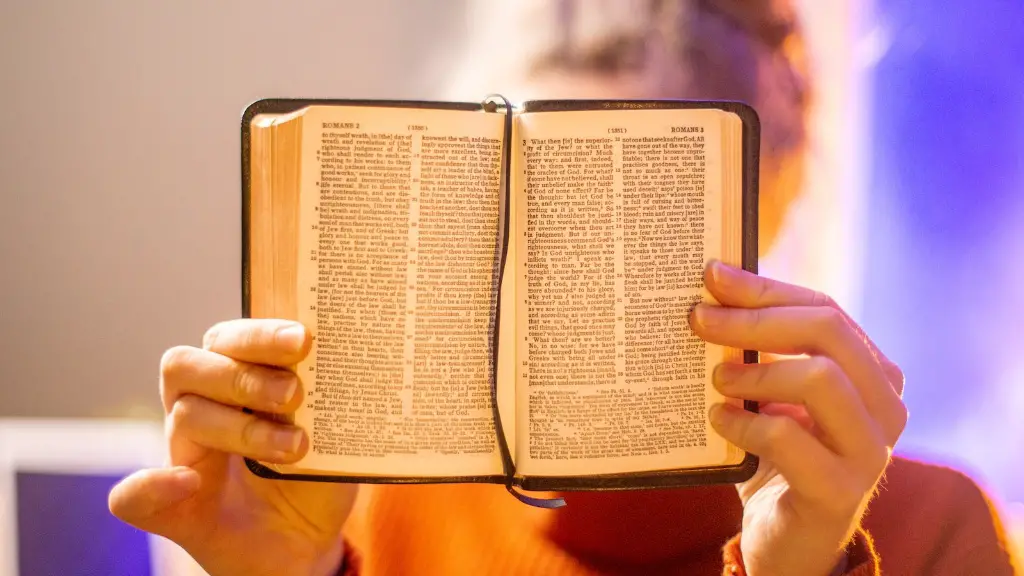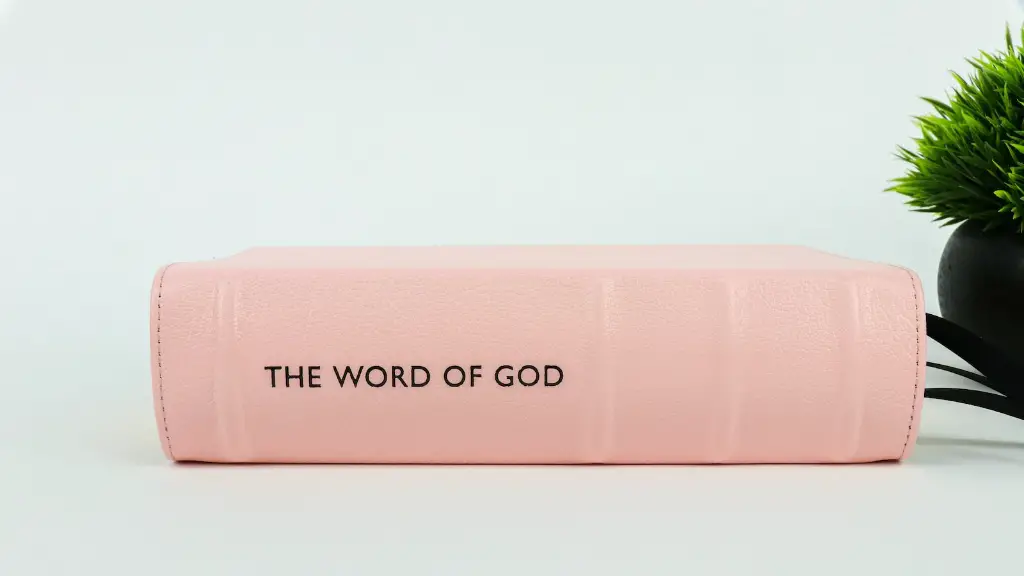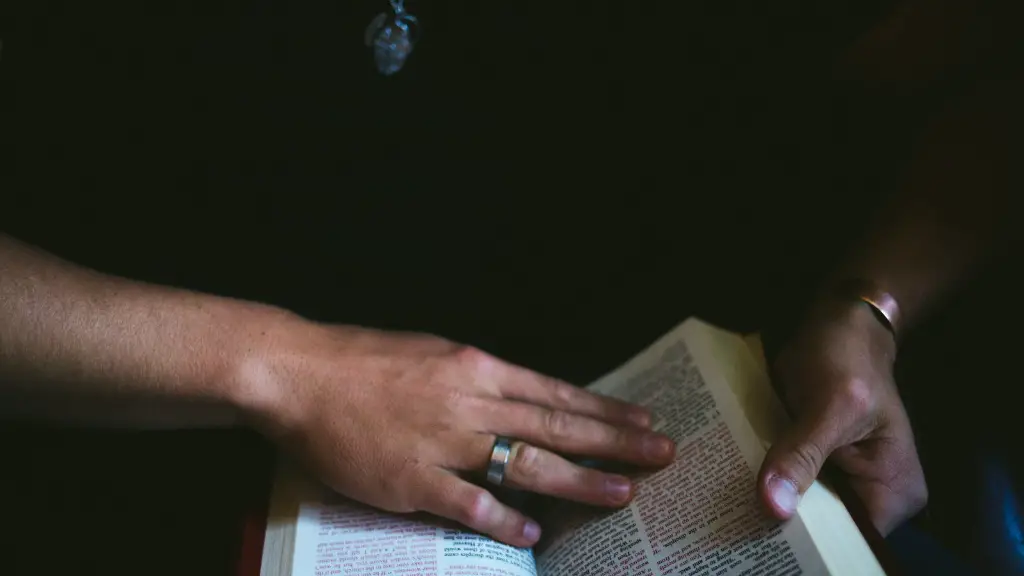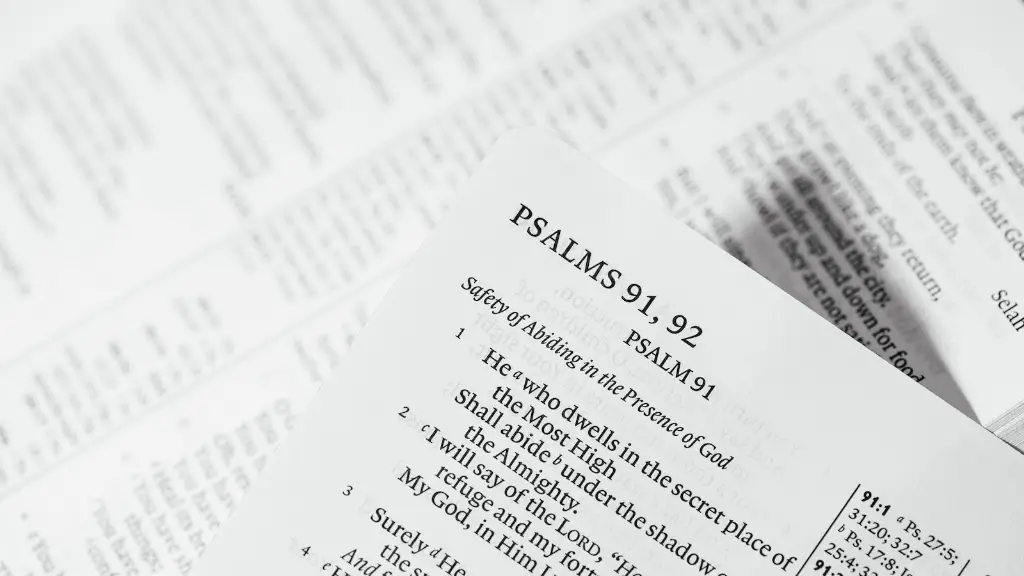Yoke is a term used in the Bible, both in Jewish and Christian writing. The word itself is derived from the Semitic root aq, which means “to bring together and bind.” In the Bible yoke is used in a variety of contexts, usually referring to servitude, burden, or law. In the Old Testament, yoke is used in both symbolic and literal ways, often connected with a promise or commandment from God to the people of Israel. In the New Testament, the term yoke is used in a metaphysical sense, often to refer to spiritual burdens.
In the Old Testament, the term yoke most often appears in reference to the servants of God, such as the slavery of the Israelites to Pharaoh in Egypt and the slavery of Jews to Babylonian rule. It is also used in reference to the burdens Abraham was given during his life and his ultimate obedience to God’s commands. In the prophetic books, yoke is often used metaphorically to refer to the burden of God’s law, especially in connection with the laws of Moses and the Israelites. Common references to yoke in the Old Testament include the promise of God to “take the yoke off your neck” and replace it with a “blessed” yoke, as well as the promise of God to “break the yoke” and lead Israel out of bondage. In both cases, the yoke is a physical object – the “yoke of bondage” — that stands for the psychological or spiritual burden of servitude.
The New Testament uses yoke as both physical and metaphorical. Paul often used the term to contrast the burden of the yoke of Law with the freedom of the Spirit. In Matthew 11:28-30, Christ says, “Come to me all you who are weary and burdened, and I will give you rest. Take my yoke upon you and learn from me, for I am gentle and humble in heart, and you will find rest for your souls. For my yoke is easy and my burden is light.” The yoke referred to here is no longer a physical burden, such as slaver, but a tool to help us understand the spiritual teachings of Christ. The easy yoke of Christ refers to the internalizing of Christianity and its spiritual practices, free from the external pressure of the Law.
The yoke of Christ refers to the nature of living as a Christian, submitting to God’s will through your actions and words. The yoke of bondage refers to the bondage of sin or anything that would come between you and your relationship with God. The yoke of Christ is a burden to bear, but a result of acceptance is that you experience peace and joy, rather than pressure and oppression. In the New Testament, Paul often uses the term yoke to emphasize the duty of a Christian to ‘yoke themselves’ to Christ and live a life in submission to His will.
Yoke As A Symbol
Within the Christian context, yoke is a powerful symbol of servitude to God, suffering, and also unity. In the Old Testament, the yoke was a symbol of God’s authority and the responsibility of His people to obey Him. In the New Testament, the yoke is most often seen as a symbol of unity between God and humanity. The yoke is the bond that binds us to God, no longer the physical burden of slavery, but rather the spiritual burden of holiness, righteousness, and justice.
Yoke has been used throughout Christian history in iconography, literature and music. It is a powerful symbol of submission to God and of the burden of His commandments, but also of our faithfulness in return. Just as the yoke of the Old Testament was a physical reminder of submission to God, the yoke of the New Testament is a spiritual reminder that we are all connected to each other through God and our faith in Him.
For Christians, yoke is a reminder that we must faithfully serve God and keep His commandments out of love and obedience, without guilt or expectation of reward. The yoke also serves as a reminder that all who are in Christ are in union with God, and therefore share a common burden and a common destiny.
Yoke And Church
In the Church, yoke is often used to represent the relationship between the servant and the master. The yoke symbolizes the submission of the servant to the master, who, in turn, provides guidance and protection for the servant. Yoke also symbolizes the united effort of a group of people to achieve a common goal. When used as a symbol of the Church, the yoke can be interpreted as the submission of the members to the teachings of the Church and its leaders, as well as the unity of the Church and its members in service to each other and to God.
In the Church, yoke is often used to represent prophetic symbolism of the coming of the Messiah and the Church’s mission to proclaim the Gospel. In this sense, the yoke symbolizes an oath that God has made to His people to bring them freedom and justice, and to ultimately redeem them through the Cross of Jesus Christ.
In modern times, the yoke is a symbol of solidarity and a reminder of our commitment to each other, to the Church and to God. It is a reminder of our submission to God and a symbol of the unity we have in Him.
Yoke And Community
The yoke is a powerful symbol in all communities, particularly in Christian ones. It symbolizes the shared hopes and burdens of community life and reminds us of our responsibility to bear one another’s burdens as we carry our own. In a communal setting, the yoke also serves as a reminder of our unity and solidarity in Christ, serving as a metaphor for the Church’s mission of proclaiming the good news of salvation to all people.
In communities struggling with poverty or disease, the yoke is a symbol of the burden of suffering that many have to bear. It is a reminder of Christ’s suffering on the cross and of God’s willingness to bear the suffering of His people. The yoke is a powerful symbol of our solidarity in Christ and of our commitment to carrying one another’s burdens through prayer and practical acts of kindness.
The yoke is a reminder of our interconnectedness and of our part in bearing the burden of sin. In this sense, the yoke expresses a desire to bind ourselves to Christ and to help shoulder the load of difficulty that is the result of our sinful nature. It reminds us that, in the words of Jesus, “My yoke is easy and my burden is light.”
Yoke As A Spiritual Practice
The yoke is a powerful symbol in the Christian faith, but it is also a spiritual practice that can have a profound effect on our spiritual lives. Yoke meditation is a form of prayer and meditation that allows us to connect with God and to relinquish our anxieties and worries. It is based on the idea that the yoke is an instrument of God that can help us to recognize our place in His will. Through yoke meditation, we can come to accept that we are a part of a greater plan, with God as the leader, and detach from the pressures of our daily lives. As we meditate, we can feel the presence of God and our unity with His will.
Yoke meditation is a great tool for developing spiritual deepening and is a wonderful practice for individuals and groups. It can help us feel grounded, supported, and strengthened in our faith. The practice can also be an opportunity for communal prayer and spiritual growth, as we use the yoke as a tool to connect and unite as one in prayer.
Yoke As An Object Of Faith
The yoke is a powerful symbol of faith and of a commitment to serve God. In Christian circles, the yoke is often used to signify submission and surrender to God, and to remind us of our part in His plan. For believers, the yoke serves as a tangible reminder of our commitment to Him and to following His directives. In this sense, the yoke is an object of faith and a tool to remember our part in the body of Christ.
The yoke can also be used as an object of contemplation in prayer, as a way of connecting to God and considering His will for our lives. In this sense, we meditate on the yoke and use it as a visual aid for prayer, allowing us to focus our thoughts and to draw near to God. We can meditate on the promises and victories of the yoke, which reminds us of our place and privilege as children of God.
Yoke As A Source Of Hope
The yoke is a powerful symbol of hope in the Christian faith. It reminds us that God is faithful, powerful and merciful and will provide for our needs. The yoke is a reminder that, even in times of difficulty, we can have hope that God will work out all things for the best. It is a source of strength, comfort and solace in the face of suffering, sin, and despair. It is a reminder of the promises of Jesus Christ and of the victory he won on the Cross.
The yoke is a symbol of hope because it reminds us of our unity with God, and that He is walking with us through even the darkest times. It reminds us that God is there for us and in control of all circumstances. For those who are suffering, the yoke can be a reminder that even in our suffering we can have hope, because we can trust in the promises of God and that He will provide for us.
The yoke is a powerful symbol of Christian faith and should be treated as such. By meditating on the yoke and turning to it in prayer, we can find hope and strength to face the struggles and difficulties of life. We can use the yoke as an object of contemplation and as a reminder of our place in God’s plan and in the body of Christ. The yoke is a powerful reminder of God’s faithfulness and His love for us.





